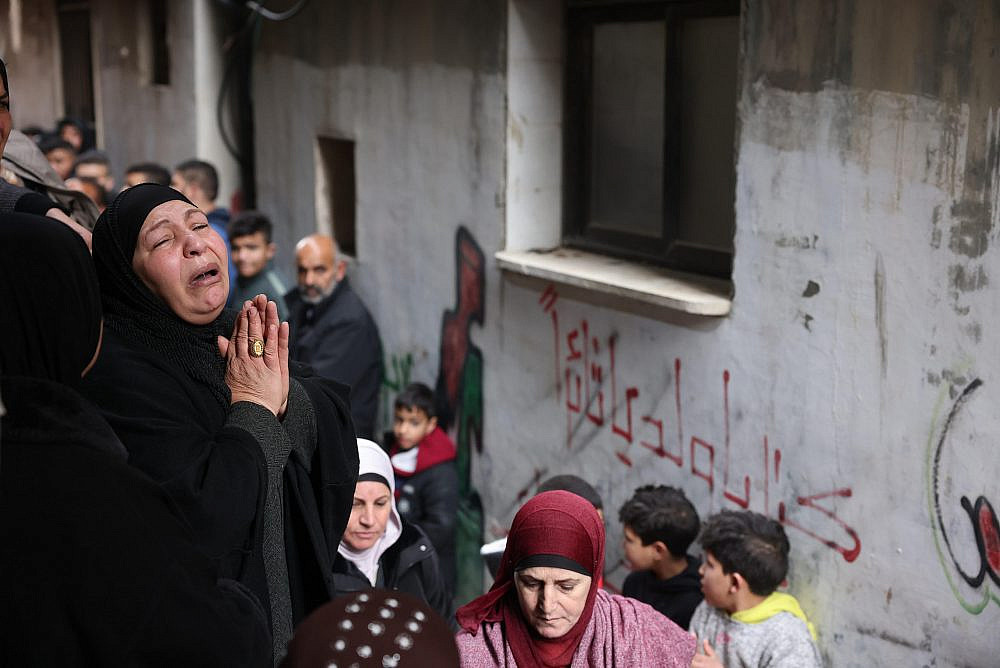Thirty-five Palestinians have been killed by Israeli army or settler fire in the occupied West Bank in January 2023, the first month of Netanyahu’s sixth government, marking a major intensification in the rate of Palestinian fatalities, according to data collected by Local Call and +972. The last month also saw the deadliest attack against Israelis since 2011, when seven were killed by a Palestinian gunman in the Neve Yaakov settlement in East Jerusalem.
These figures reflect a dramatic escalation following a year in which 154 Palestinians were killed in the West Bank — the deadliest year for Palestinians in the occupied territory since 2005. While in 2022 the average fatality rate was 13 Palestinian deaths per month, 2023 opened with an average that was almost three times higher, with more than one Palestinian killed every day. The last time such a high rate was recorded in the West Bank, including East Jerusalem, was in October 2015, when Israeli forces killed 47 Palestinians. Last year also saw Palestinians kill 31 Israelis, 24 of them civilians, the highest number since 2005.
Out of the 35 Palestinians killed in January of this year, 25 were killed during Israeli military raids in areas of the West Bank under Palestinian control, mostly in the Jenin refugee camp. Five Palestinians were killed while they allegedly attacked or tried to attack soldiers or settlers; three were killed during protests that were unrelated to the army’s raids; one Palestinian was killed during a search at a checkpoint; and another Palestinian was killed while he allegedly ran away from such a search.
The data indicates that the army’s operations in densely-populated places in Areas A and B [the former is under full Palestinian Authority control, while Area B is administered jointly by the PA and Israel] may have affected the large number of casualties. In several cases, Palestinians who were uninvolved in hostilities between militants and soldiers were killed, and there is also no evidence to show that all the dead were involved in shooting at soldiers. Thus, most of the deaths were the result of military activities initiated by Israel, rather than the result of active attempts to harm Israelis.
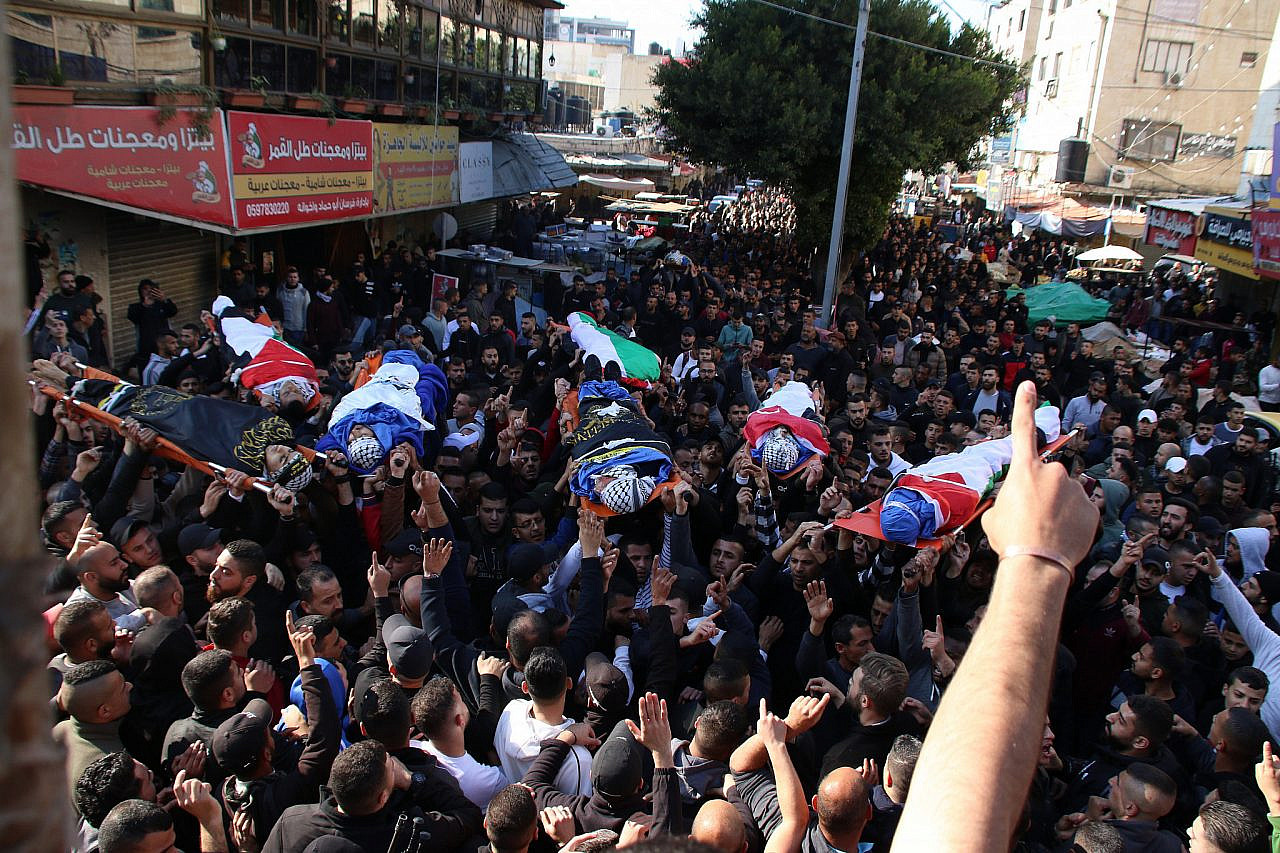
Six of the 35 killed were minors, while the average age of the dead was 26 years old. Twenty were from the Jenin area, most of whom were killed in the refugee camp. In total, 23 of the dead, including all six minors, were from the northern West Bank.
Apart from one 61-year-old woman who was killed during the Jan. 26 raid on Jenin Refugee Camp, the rest of the dead were men. That raid was the deadliest event of the last month, resulting in the killing of 10 Palestinians, at least three of whom were not involved in the shootings or confrontations with the army.
Where’s the ticking bomb?
While Israel initially claimed that the Jan. 26 incursion in Jenin was a “ticking bomb” operation against Islamic Jihad operatives who were planning a large-scale attack on Israeli civilians, military officials later admitted that the targets of the operation were not on their way to carry out an attack at the time of the raid. A senior officer told the media that “the number of Palestinian casualties in relation to the amount of fire used against the forces is lower than it could have been,” and admitted that the operation was intended to “remove the cell from the IDF’s warning table,” but that there was no concrete information about an immediate intention to carry out an attack.
In addition to the Palestinian who carried out the shooting attack in Neve Yaakov, in four cases Palestinians were shot during attacks or attempted attacks on soldiers and settlers. In another case on the night between Jan. 29 and 30, soldiers shot one Palestinian minor, which the army claimed was the result of a self-inflicted accident. The Palestinian Health Ministry said that the young man was shot in the head by soldiers.
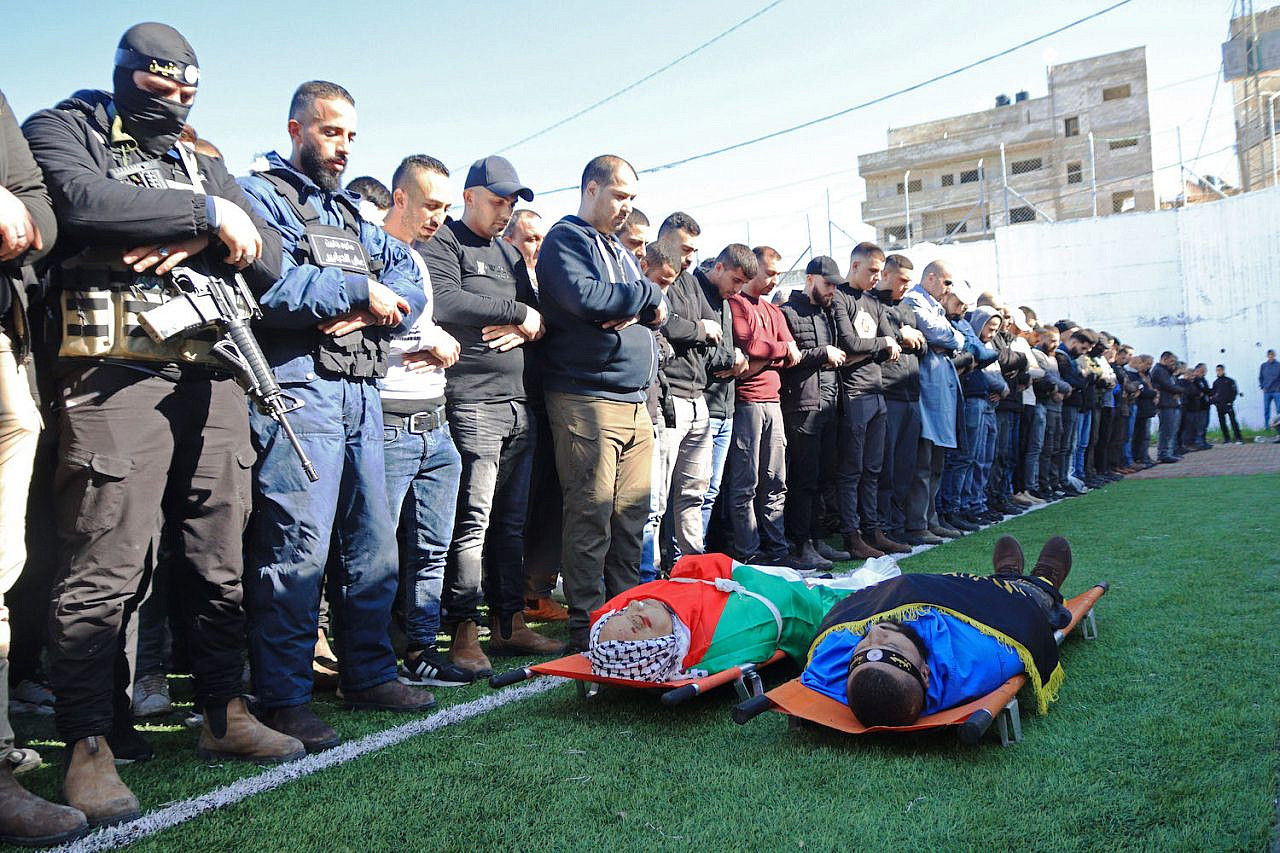
In two other cases, Israeli settlers shot dead Palestinians who allegedly tried to carry out stabbing attacks. One took place at the Sde Efraim farm near Ramallah, and the other on a farm in the South Hebron Hills, where the farm owner was stabbed.
In addition to last week’s killings in Jenin, three other cases received significant media attention. On Jan. 12, Samir Aslan, 41, watched from his balcony in Qalandiya Refugee Camp as Israeli soldiers arrested his 17-year-old son Ramzi. The soldiers fired dozens of bullets, hitting Samir in the chest and killing him.
“The soldiers refused to let my son [Ramzi] get dressed or go to the bathroom. I wanted to hug him, but a soldier pointed the weapon at me and said it was forbidden,” said Marwa, Samir’s wife. “They said they wanted to take him downstairs. We asked them not to beat him. Then they took him to the electricity pole and started attacking him. His father [Samir] went out on the balcony, and they shot him. I called an ambulance and they continued to shoot. It took about an hour until an ambulance evacuated him.”
On Jan. 19, during an army raid in the Jenin Refugee Camp, Israeli soldiers shot dead Jawad Bwakna, a 57-year-old teacher. His son said Bwakna was shot after he left his house to help a wounded Palestinian who had been shot by Israeli forces and was lying on the ground.
On Jan. 15, Ahmad Hassan Kahla, 45, from the village of Rammun, was shot dead at a checkpoint near the town of Silwad. Initially, the army claimed that Kahla, who arrived at the checkpoint on his way to work with his son, got out of his car, threw stones at the soldiers, and approached them with a knife. The army later changed its story and claimed that the soldiers demanded Kahla stop, and when he did not respond, they fired tear gas at him; that is when he got out of his car, tried to grab a weapon from a soldier, and was subsequently shot.
However, eyewitnesses said that soldiers threw a stun grenade at the car, and then sprayed Kahla’s son with pepper spray and pulled him out of the vehicle. When the father went out to see what the soldiers were doing to his son, he was shot. An investigation by an Israeli brigadier commander into the incident did not match the soldiers’ version of the events, concluding that Kahla should not have been shot at all.
In three cases in the Jerusalem area, Palestinians were shot dead during an unarmed protest that included stone throwing and shooting of fireworks in the direction of Israeli forces.
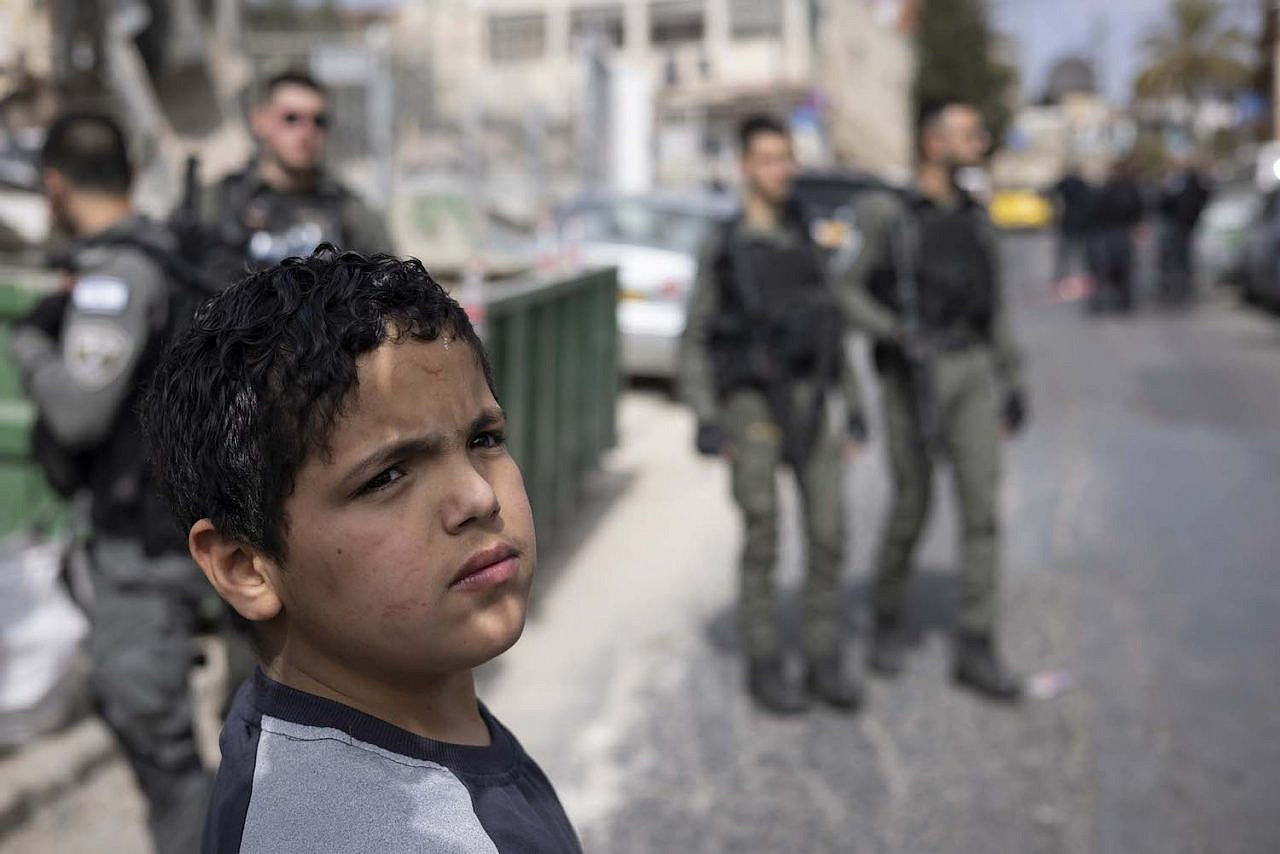
On Jan. 25, 16-year-old Wadih Aziz Abu-Ramuz died of his wounds from police gunfire, after he allegedly shot fireworks in their direction in the neighborhood of Silwan.
A few days earlier, police officers shot and killed Muhammad Ali, a 17-year-old boy from the Shu’afat Refugee Camp. According to the police, Ali was holding a toy gun while participating in the confrontations that followed a home demolition in the camp. Yousef Muheisen, 22, was shot at the entrance to the town of A-Ram, north of Jerusalem, during a protest following the Jan. 26 killings in Jenin. The bodies of the first two boys, Abu-Ramuz and Ali, have not yet been returned to their families.
‘A bleak future’
Shawan Jabarin, the executive director of Al-Haq — the oldest and largest Palestinian human rights group, and one of six that were declared a “terrorist organization” by Israel in 2021 — visited Jenin Refugee Camp this week as part of a civil society delegation investigating last week’s military raid. “We saw the level of the crimes that were committed. It was something we haven’t seen in the West Bank in years. Every home we passed had bullet marks on the walls,” he said.
“The Israelis are invading everywhere, including in Ramallah,” Jabareen continued. “Some members of the PA security forces have been involved in the fighting against the army in Nablus and Jenin. This shows that Palestinians are fed up with working in the security forces. They refuse to allow the present situation to continue. People say, ‘if you fight you will die, and if you stay at home you will die.’ When life and death become equal, this should concern everyone, and this is the situation now in the occupied territories.”
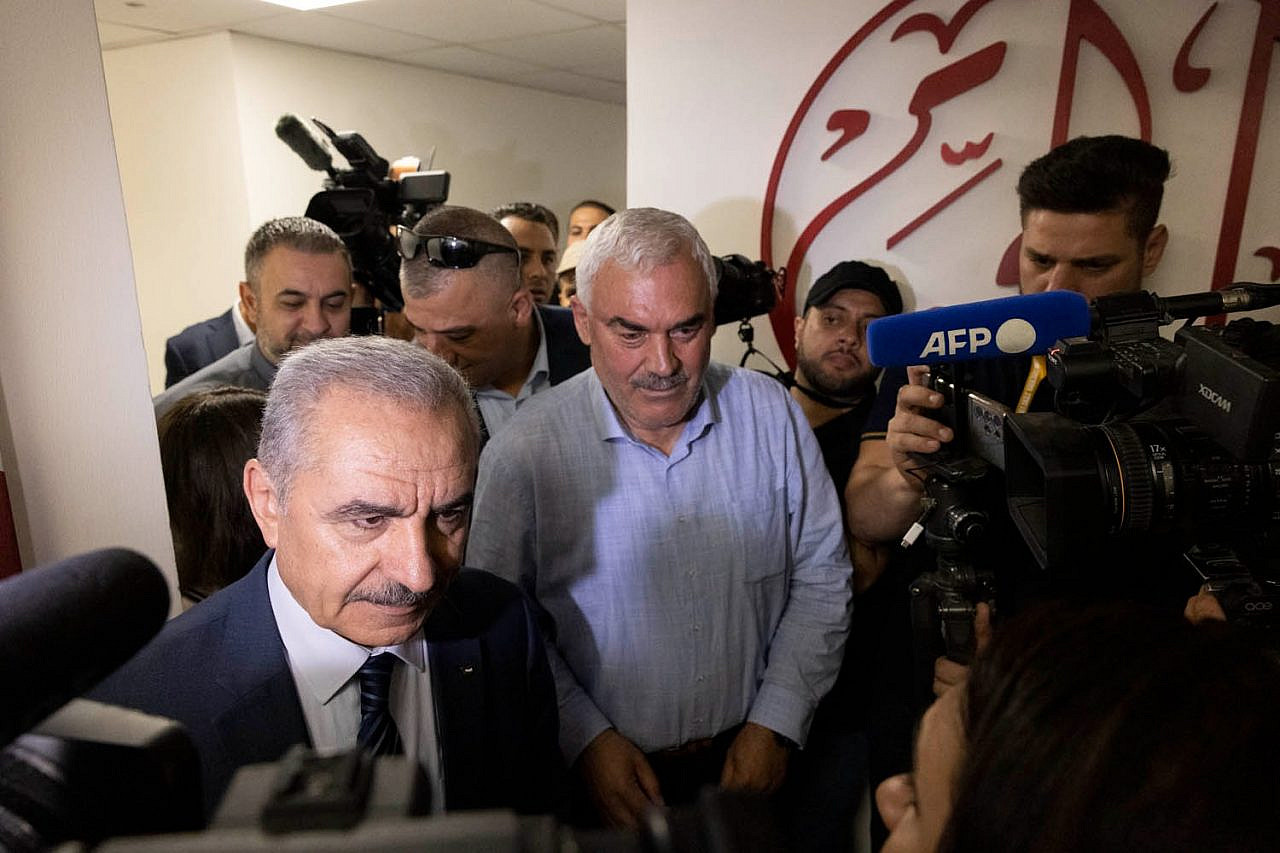
Jabareen lamented the lack of intervention by foreign states to protect Palestinian lives from Israeli violence. “Unfortunately, the international community looks at this as a matter of numbers,” he said. “We don’t want the suffering and killing to become simply numbers, because behind them is a very deep pain that affects everything in the lives of families.
The Al-Haq director also stressed that this level of violence was not limited to the current far-right government. “Israeli political parties, whether left, right, or center, are in competition over who can attack, kill, and destroy more,” he said. “Even when Benny Gantz and Yair Lapid were in the government, they tried to show Netanyahu and the others that they are stronger. The victims of this experiment are Palestinians. Now [Itamar] Ben Gvir and his accomplices, beyond their ideology, are trying to show that they are attacking Palestinians, which means there will be more killing, as we saw in January. I see a bleak future — like it was before, but even worse.”
A version of this article was first published in Hebrew on Local Call. Read it here.


